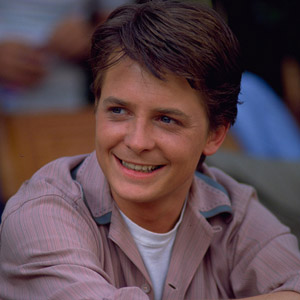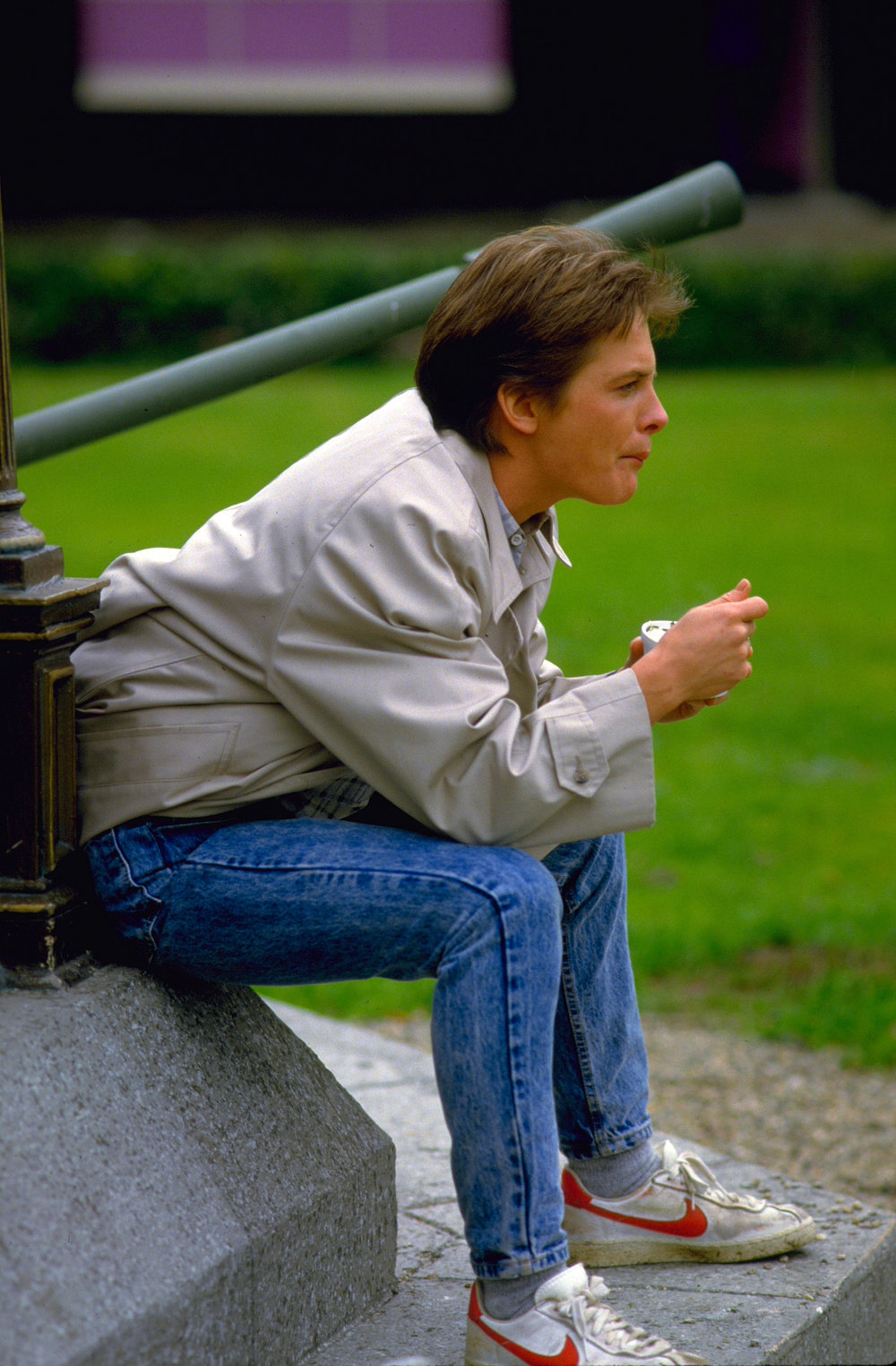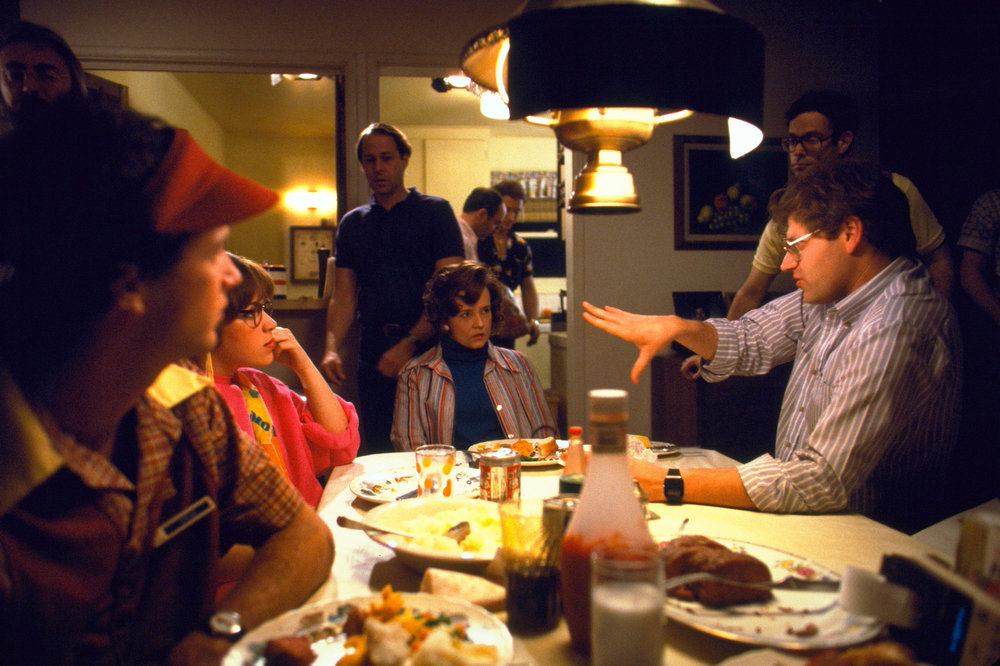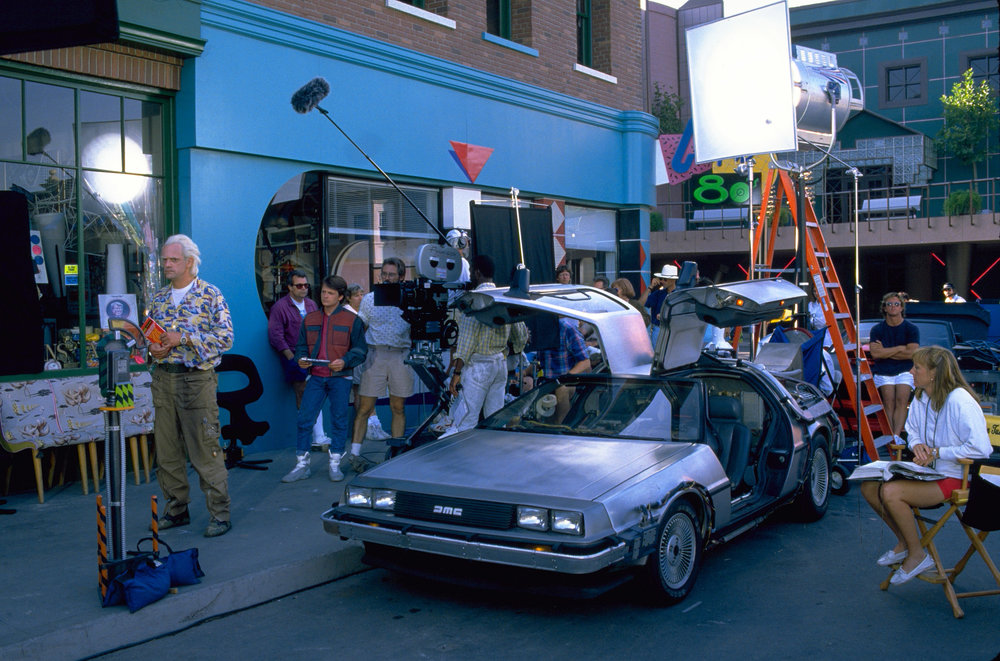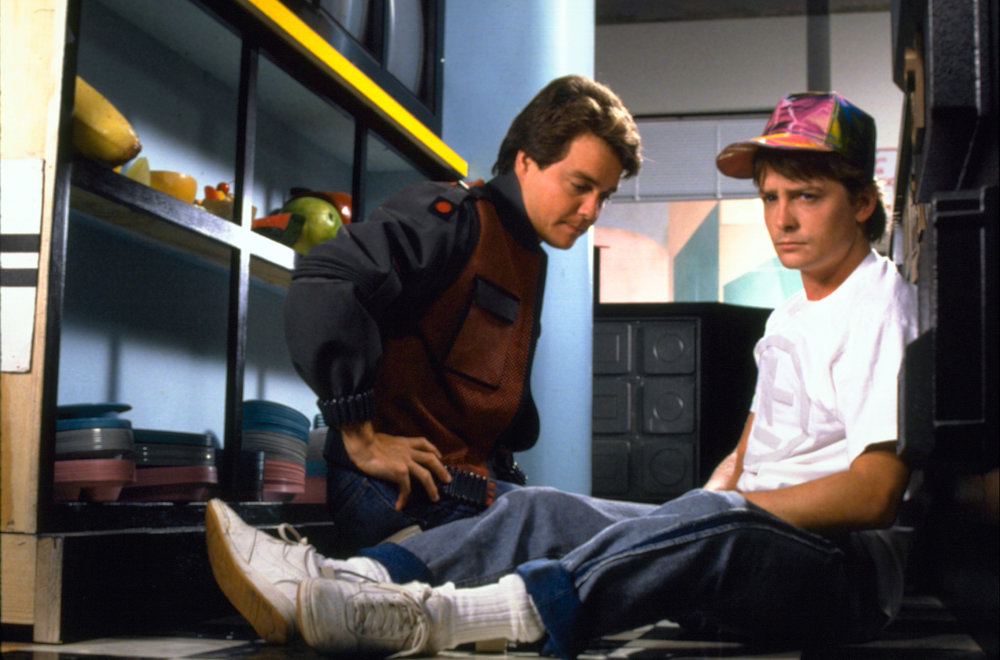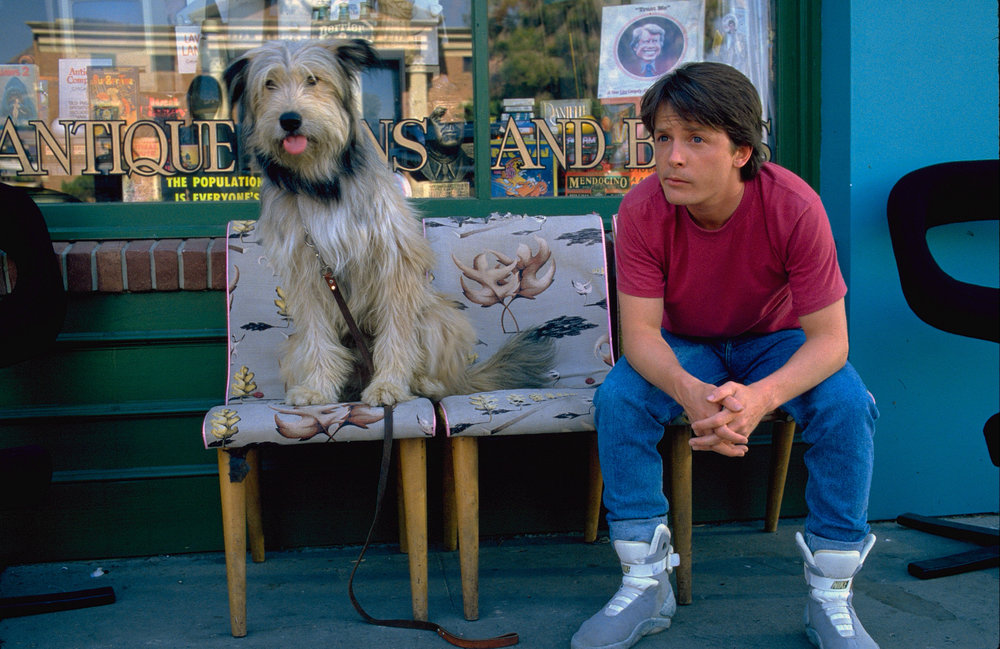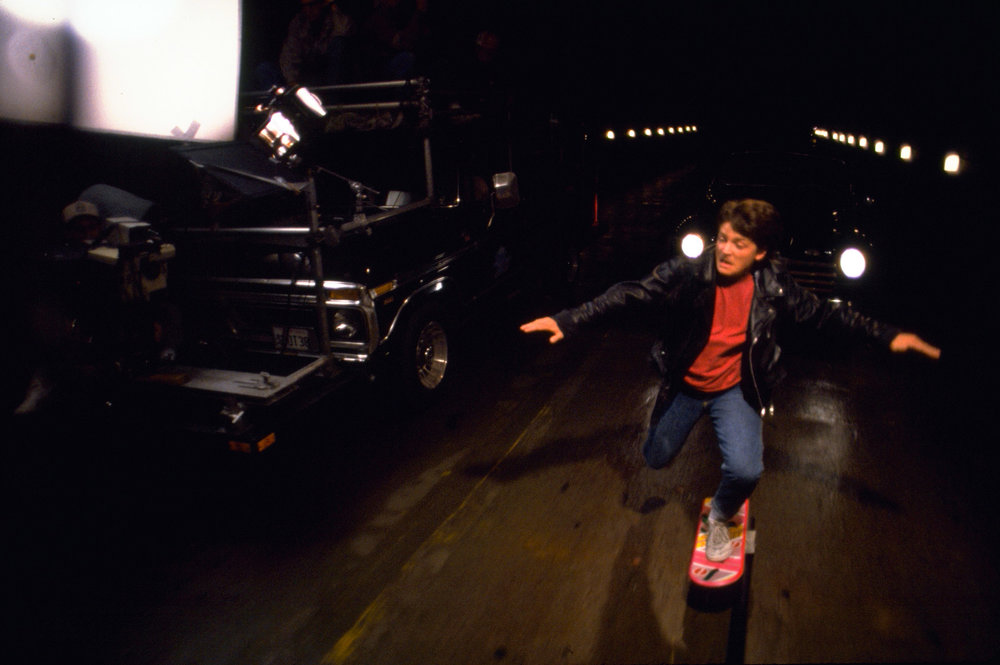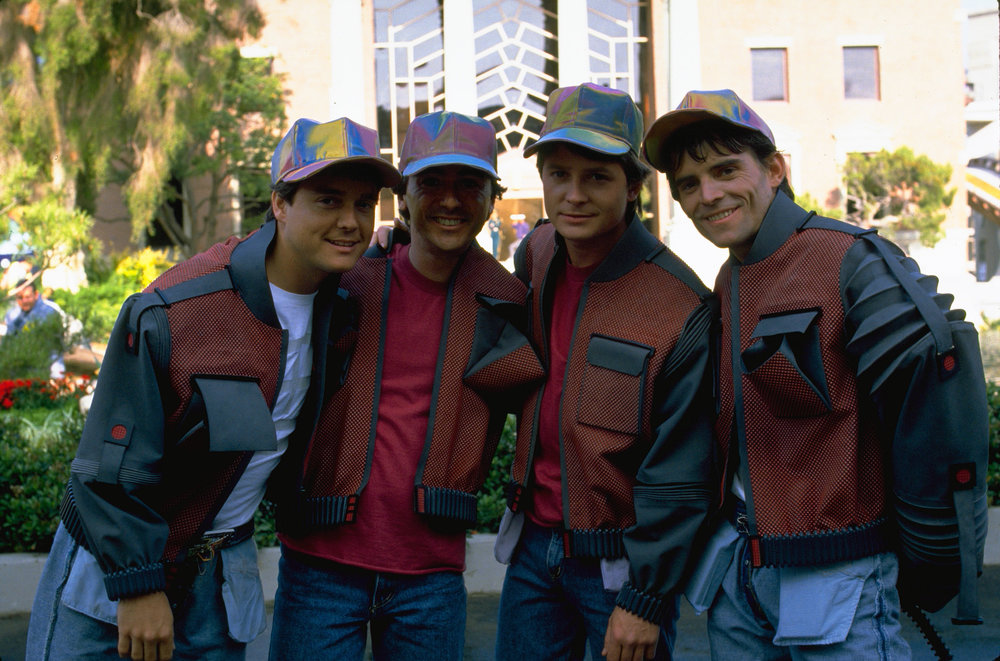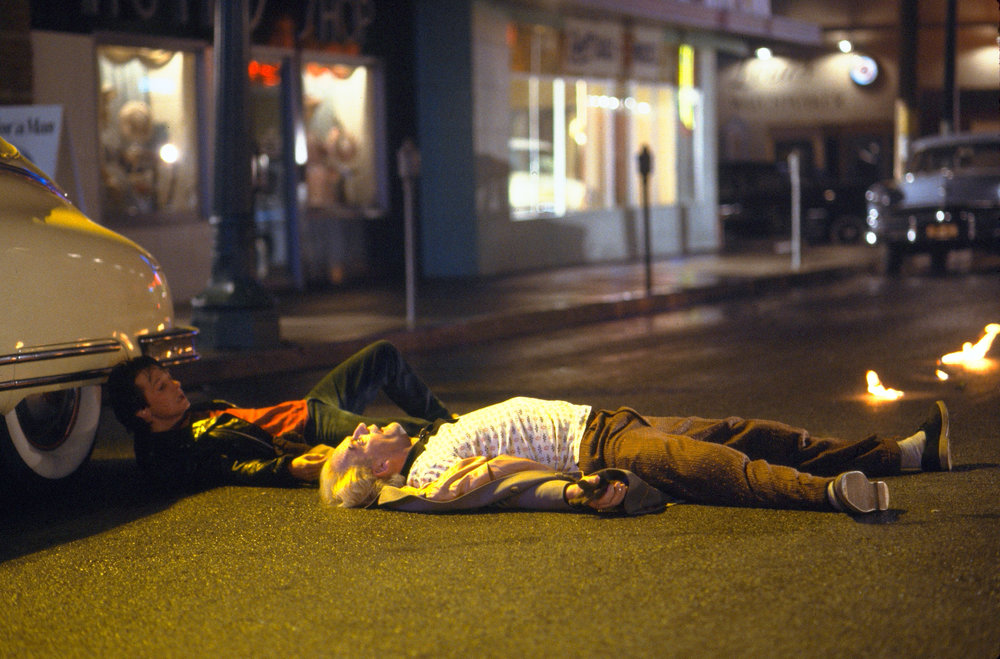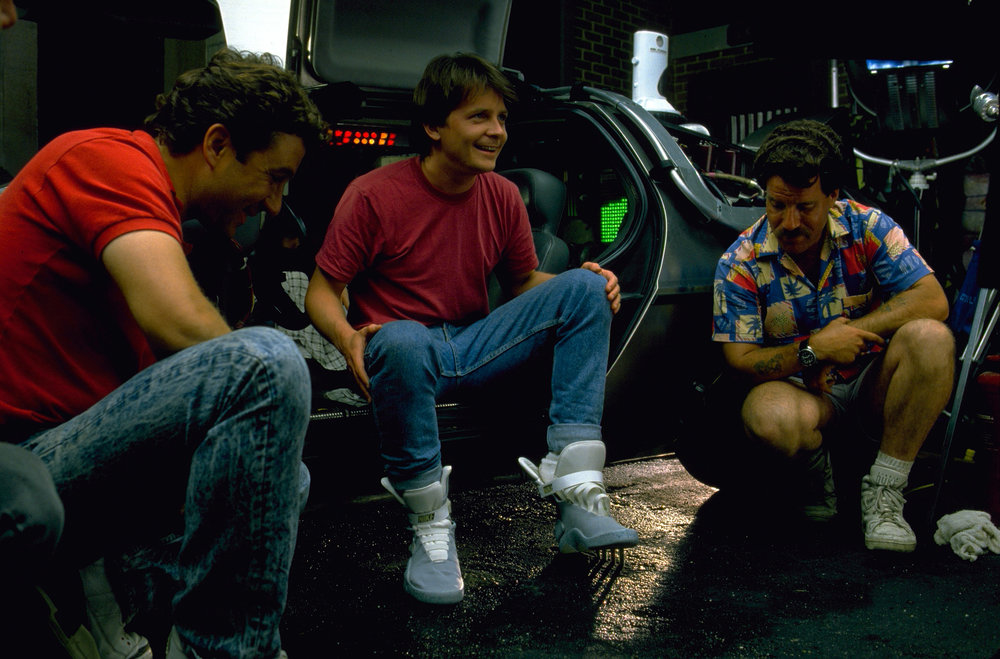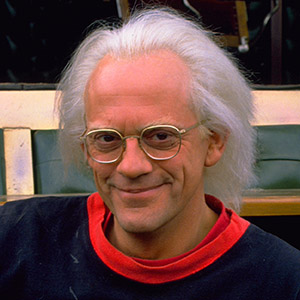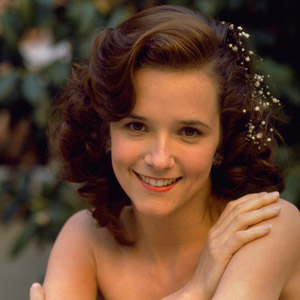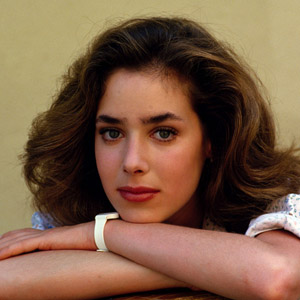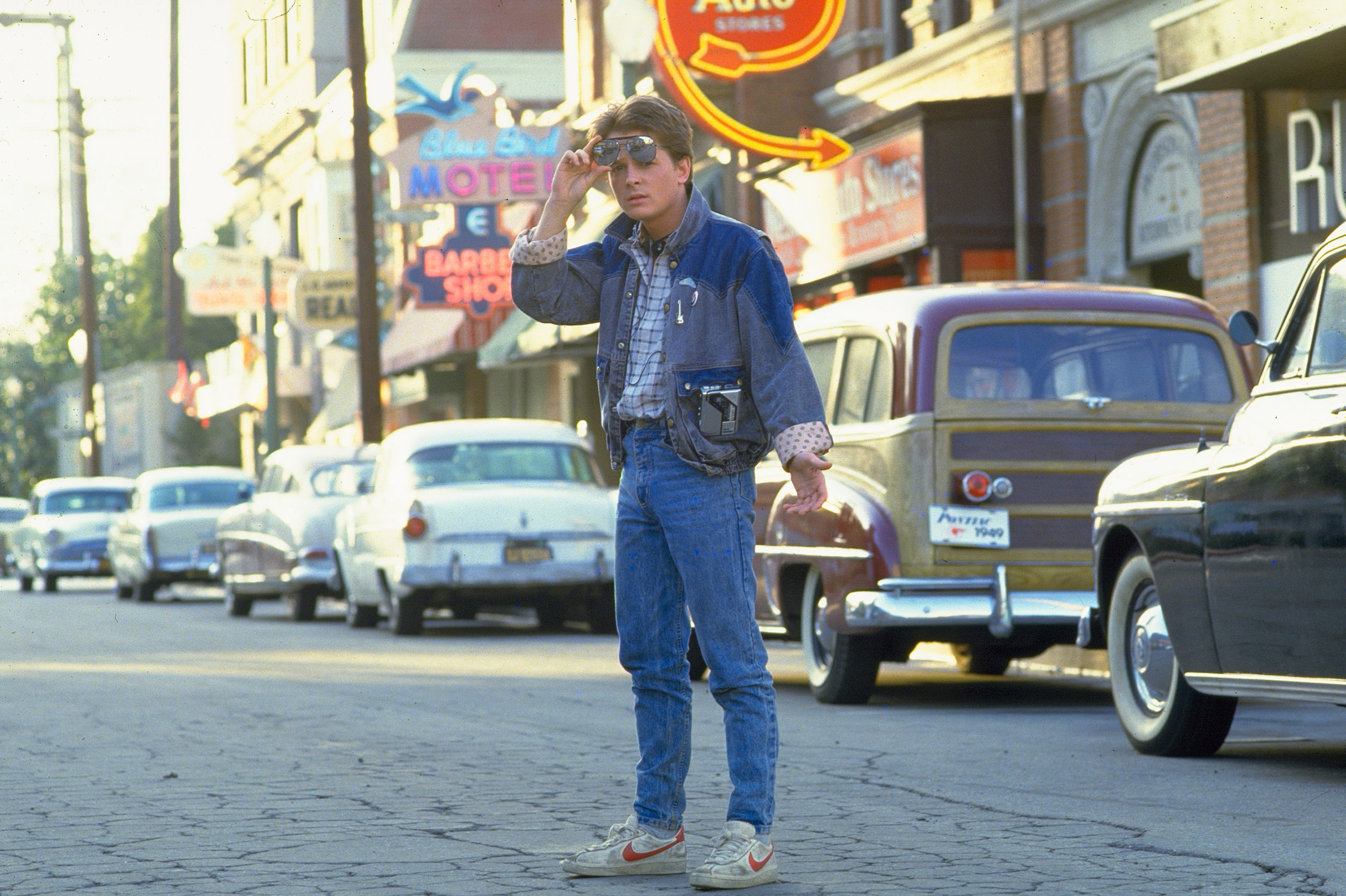

Michael J. Fox
Michael J. Fox began as a professional actor at 15 years old, co-starring in the sitcom LEO AND ME on the Canadian Broadcasting Corp. (CBC) with future Tony Award winner Brent Carver. Over the next three years, Fox juggled local theater and TV work and landed a few roles in American TV movies shooting in Canada.
In 1982, he won the role of lovable conservative Alex P. Keaton on NBC's popular FAMILY TIES. During seven years on FAMILY TIES, Fox earned three Emmy Awards and a Golden Globe, making him one of the country's most prominent young actors. Fox returned to series television in 1996 with ABC's SPIN CITY, portraying New York Deputy Mayor Michael Flaherty. He won critical praise as well as plenty of hardware, garnering three Golden Globe Awards, one Emmy Award, three Emmy nominations, a GQ Man of the Year Award in the TV comedy category, a People's Choice Award and two Screen Actors Guild Awards.
Fox also had time during his busy TV work to become an international film star, appearing in over a dozen features showcasing his keen ability to shift between comedy and drama. These include the BACK TO THE FUTURE trilogy, THE HARD WAY, DOC HOLLYWOOD, THE SECRET OF MY SUCCESS, "BRIGHT LIGHTS, BIG CITY, LIGHT OF DAY, TEEN WOLF, CASUALTIES OF WAR, LIFE WITH MIKEY, FOR LOVE OR MONEY, THE AMERICAN PRESIDENT, GREEDY, THE FRIGHTENERS and MARS ATTACKS!
Fox has shifted his primary focus and energies toward the Michael J. Fox Foundation for Parkinson's Research, which he launched in 2000. Its effort is to raise much-needed awareness and research funding for Parkinson's disease. Fox wholeheartedly believes that if there is a concentrated effort from the Parkinson's community, elected representatives in Washington, D.C. and (most importantly) the general public, researchers can pinpoint the cause of Parkinson's and uncover a cure within our lifetime.
Fox married his FAMILY TIES co-star, actress Tracy Pollan, in 1988. Together they have four children.
Marty McFly
If the idea of putting in a little overtime sounds to you like a few extra hours at the office, or an occasional working weekend, consider the schedule of actor Michael J. Fox, who as Marty McFly in Universal's 'Back to the Future', volunteered himself for one of the most rigorous schedules in Hollywood history.
When the popular star of NBC's hit show 'Family Ties' was cast in "Back to the Future" as an adventurous high school student who finds himself traveling back in time to 1955, his series still had two more months of active production. For Michael, that left only one option: he would work both jobs simultaneously and catch up on his sleep some time next year. Fortunately, the 24-year-old fireball is a bundle of energy, which may explain why he was able to put in a full day's work for "Family Ties" and then shuttle to a soundstage at Universal Studios and work until the wee hours of the morning.
"I knew this would be a gruelling schedule," admits the actor with a smile. "But I learned to enjoy it, and besides, if I can't handle it at this age, I might as well get out of the business! Fortunately, Alex, from 'Family Ties' and Marty McFly, are two distinct characters and it's easy to separate them," he continues. "If my energy does drop at all, Bob Zemeckis just snaps me out of it. The man is possessed; he never runs out of energy and I get psyched up just watching him work."
From mid-January through mid-March, a typical day in the life. of Michael J. Fox meant reporting to Paramount Studios for his TV show from 10 a.m. to 6 p.m., and then on to Universal for "Back to the Future" from approximately 6:30 p.m. to 2:30 a.m. But it was his Friday schedule that left both crews shaking their heads in wonder. Since "Family Ties" tapes in front of a live audience on Friday evenings, Michael would rehearse with his TV family from noon until 5:00 p.m., perform two tapings and then report to the set of his film at 10 p.m. The motion picture crew would then film until 6:00 or 7:00 a.m. leaving one exhausted actor a weekend in which to rest and recuperate, only to start the routine all over again on Monday morning.
“When I first started on the movie, we filmed several special effects sequences, and I remember being a bit intimidated by it all. On the very first day of work, I climbed out of a DeLorean wearing a yellow space suit, into a barn full of smoke and hypnotized chickens. After a while I learned to relax and enjoy all the commotion around me.””
Asked if there are any similarities between himself and Marty McFly, Fox says, "When I was in high school, I was very much like Marty. He's a little flashier, but more than anything, Marty learns that in order to get a lot of things done, you've got to take risks and he takes risks continuously through the course of the film. In a way, that's what happened when I came down from Canada. I was 18, by myself, and didn't know how it was going to work out."
Born in Vancouver, British Columbia and raised in a family with five children, Fox began working at age 15 in a regional TV series called "Leo and Me." After a small role in a television film with Art Carney and Maureen Stapleton, he moved to Los Angeles on his own and was soon at work on a Walt Disney feature, "Midnight Madness."
From there, he won a role in the critically acclaimed CBS series, "Palmerstown USA" by Alex Haley, and won guest starring roles on such series as "Trapper John," "Lou Grant " and "Family."When the part of Alex Keaton came along for "Family Ties," he was not the producer's first choice, but a loyal casting director managed to wear him down and Fox soon became a network favorite and the recipient of approximately 500 fan letters per week. Ironically, it was the flexibility and solid support of "Family Ties" producer Gary Goldberg that made it possible for Fox to schedule his series and a motion picture at the same time.
“When I was 14 or 15, I played in garage bands," he continues. I was kind of a hack guitarist, which means I wasn't good, but I was dedicated. When I started acting, I dropped the music, but when I saw this scene in the script, I knew it was for me."
“I’ve been very grateful for the kind of training I’ve received by doing a weekly series. I think that both Chris Lloyd, who did ‘Taxi’ and I have good reflexes and we’ve learned to adapt to a fast pace and quick changes.”
Favorite Scene
Fox admits that his favorite scene in the film takes place in 1955 when he performs Chuck Berry's classic "Johnny B. Goode" for a high school dance before the dawn of rock and roll. "I was able to live out two fantasies with this movie," offers Fox. "I've always wanted to do a big budget feature, with splashy special effects and a great. story, and I've always wanted to be a rock and roll star. In 'Back to the Future' I get to do both.
He jokingly describes "Back to the Future" as a "comedy- action-fantasy-adventure-coming-of-age film," adding, "It's got a lot of everything, comedy, gadgetry and a story that doesn't quit. I call it a $20 investment, because you may have to see it four times before you absorb all the terrific things that are going on in those two hours."
Steven Spielberg presents a Robert Zemeckis film "Back to the Future," starring Michael J. Fox, Christopher Lloyd, Lea Thompson, Crispin Glover and Thomas F. Wilson. The screenplay is by Robert Zemeckis and Bob Gale, with music by Alan Silvestri. It is produced by Bob Gale and Neil Canton. The executive producers are Steven Spielberg, Kathleen Kennedy and Frank Marshall. The director is Robert Zemeckis.
as of June 5, 1985

Marty McFly; Marty McFly, Jr.; Marlene McFly
"I think what made 'Back to the Future' such an immense hit," opines its star Michael J. Fox, "is that it was cross-generational. Just by the nature of the story, its appeal reached people who remembered the '50s, and interested a whole new generation in the period. It was also a very life-affirming story about relationships, as well as a 'what if?' movie, which is another thing audiences love. It's hard to analyze, and maybe it's best left that way. It's like Mark Twain's analogy between comedy and a frog. If you dissect it, you might find out what makes it work, but it'll die in the process."
Whatever the reason for the phenomenal success of the film, Fox was delighted with the prospect of returning to play Marty McFly for a second time, so much that he assumed the very same working conditions he had experienced four years eariler. In order to make its Thanksgiving release date, the movie's production schedule coincided with the filming of the final season of the hit television series "Family Ties."
For several months Fox found himself shuttling between both projects, working on the television show during the day, and filming "Back to the Future Part II" through the night. There was, however, one major difference that Fox had not encountered during the filming of the first feature. If filming a motion picture and a television show at the same time wasn't enough, Fox also had the added, but welcome distraction of the imminent arrival of his and actress Tracy Pollan's first child. Happily, the baby's sense of timing was as good as his father's, and Sam Michael Fox was born after his father had completed filming chores on "Family Ties."
“When I began work on the first film, I was pretty much walking into unknown territory. Obviously I liked the script, but I didn’t really know Bob Zemeckis, or any of the cast and crew. When I was approached to do the sequel, I knew that if the entire team was coming back, they were going to make sure that part two was every bit as special an experience as part one.”
"To my mind, they've succeeded," says Fox. "For the audience, I think the word that best describes this film is relentless. It never stops. Every time you think the characters have rescued themselves from their current predicament, and you think you can relax for a minute or two...BAM!--you run into something else. The great thing about the film is that even though there's ten things going on every second, it's not overwhelming. Everything is done in a compelling way that involves the audience and draws them closer, rather than wearing them out."
Four years after filming the first movie, Fox marvels at the new rigors that Bob Zemeckis and Bob Gale invented for Marty, physical challenges that found the actor in very uncomfortable positions at times. "What's amazing is that Bob Zemeckis is tireless in his quest for new ways to torture me," says the actor with a grin. "He was always coming up with new devices to approximate the physical reality of concepts like hoverboarding. Unfortunately, there's no such thing as a real hoverboard, so all sorts of contraptions were invented to simulate the process." Using a combination of wires, rigs and harnesses, Fox was suspended in mid-air for several hours at a time in order to film the futuristic hoverboard chase as Marty attempts to escape from Griff and his gang. "It was pretty exhausting, and occasionally painful" says the actor, "but hopefully worth it when you see the finished product." Upon thinking of all the hanging and flying that Marty does, and the number of devices necessary to implement their successful filming, Fox recalls a saying that he and director Zemeckis would quote in situations of that nature. "Pain is temporary, film is forever."
After finishing "Back to the Future," Fox was pleased to find his services wanted for numerous film projects. Not wanting to leave "Family Ties," the actor used his hiatus from the series to embark on a film career. His choice of roles over the past four years have enabled him to challenge himself and grow as a new actor, which is, for Fox, a prerequisite before considering any new project. Those films include "Light of Day," "The Secret of My Success" and "Bright Lights, Big City."
Fox is a three-time Emmy winner for his work as Alex Keaton on "Family Ties." With his most recent film performance, Fox earned critical praise for his portrayal of a soldier who must fight not only the enemy, but his fellow platoon members, and his sense of morality as well, in "Casualties of War."
After four grueling months in the jungles of Thailand, Fox was more than ready to don the Nikes of Marty McFly and set out on a new adventure with Doc Brown. "The great thing about doing this sequel," he says, "is that I had an incredible experience doing the first film, and then four years later, the filmmakers say 'C'mon, let's do it again.' It's similar enough so that we've all relived that same pleasure for the second time, yet it's just different enough so we feel we're doing something new and interesting, and definitely creative."
Steven Spielberg Presents A Robert Zemeckis Film. "Back to the Future Part II." Starring Michael J. Fox, Christopher Lloyd, Lea Thompson, Thomas F. Wilson. Music by Alan Silvestri. Edited by Arthur Schmidt, Harry Keramidas. Production Design by Rick Carter. Director of Photography, Dean Cundey, A.S.C. Executive Producers, Steven Spielberg, Frank Marshall, Kathleen Kennedy. Story by Robert Zemeckis & Bob Gale. Screenplay by Bob Gale. Produced by Bob Gale and Neil Canton. Directed by Robert Zemeckis. A Universal Picture.
as of October 24, 1989
Marty McFly; Seamus McFly
Well before there was ever any thought of a sequel, in a behind-the-scenes documentary about the making of the original "Back to the Future," Michael J. Fox was asked where he would choose to go if he could actually travel through time. His answer? "The Old West."
Five years later, in "Back to the Future Part III," the actor got his wish, as Marty McFly travels to Hill Valley in the year 1885 to rescue Doc Brown. "It was that proverbial dream come true," says Fox of filming the western adventure, carving his own niche among the ranks of such legendary western stars as John Wayne, Jimmy Stewart, Clint Eastwood, Gary Cooper and Alan Ladd.
“When Bob Zemeckis called ‘Action,’ I literally got chills as I walked into the middle of the dusty street, a six-shooter strapped to my leg, squaring off against a vicious desperado, as the townsfolk scramble and huddle inside the saloon doors to await the outcome of the confrontation.”
"Those are the kind of elements that make the Old West the perfect setting for the conclusion of the trilogy. The action is fast, the values are pure and the roles are clearly defined. The classic western and the 'Back to the Future' films have the same common denominator at the heart of them--the audience always gets a hero to root for and a villain to loathe."
In addition to his role of Marty, Fox also portrays Marty's great-great grandfather, Seamus, an Irish farmer who is the first McFly to emigrate to America.
"In playing Seamus, I tried to stay away from the stereotype, but there's no denying that he's a bit of a leprechaun," says the actor. "But behind the twinkle in his eye, there is also great wisdom. Seamus provides a valuable lesson to Marty concerning his tendency to overreact when someone calls him a 'chicken.' Seamus has learned through experience that you can have pride without a fall and that, in fact, pride can steer you away from a fall."
To prepare for his scenes as Seamus, Fox, as he had in "Back to the Future Part II," once again found himself in prosthetic make-up. The look of the character had to be different enough from that of Marty, so Seamus' wife wouldn't notice the resemblance between her husband and their unexpected guest from the future.
Much of the transformation was accomplished with the addition of a red wig and appropriate facial hair. The application was a relatively simple process, as opposed to the hours Fox had spent in the make-up chair for "Part II." The biggest problem posed by the make-up was Seamus' thick moustache. In a dinner scene where Seamus sits down to enjoy a rabbit dinner, Michael more often ended up eating the hair, instead of the hare.
"The make-up for Seamus wasn't nearly as extensive as old Marty or Marlene in 'Part II,'" he says, "nor was the physical change that dramatic, yet the effect was still very freeing. As I was sitting there, watching each new piece being applied, the character started to emerge. By the time it was finished, even though I wasn't consciously making the attempt, I suddenly found myself speaking with an Irish brogue."
In actuality, both Fox and Lea Thompson, who plays Seamus' wife Maggie, spent many hours with a dialogue coach in order to bring more authenticity to their roles.
Rather than relying on a generic Irish accent, the actor, along with Robert Zemeckis and Bob Gale, developed a history of the character and pinpointed an actual county in Ireland where Seamus and Maggie might have come from. Once that was done, both Fox and Thompson learned the specific nuances and speech patterns of that area. "The dialect was tough," admits Fox. "One tends to play around with different voices when you're with friends or at a party, and you think you have an idea of the accent. Then you sit down with a dialogue coach, who tells you you've got it all wrong."
Having completed his work on "Back to the Future Part III," the actor reflects upon the unique experience. "It's been a lot of hard work, to say the least. I've lost out on a lot of sleep and picked up a few bruises along the way, but I treasure every moment that I've spent on these films, with these people. I'm also very proud to be a part of a trilogy of films that, if they do nothing else, allow people to check their problems at the door, sit down and have a good time."
Fox also acknowledges that "Part III" marks his final performance as Marty. "I think it's safe to say that I've uttered 'Whoa, this is heavy!' for the last time. Marty McFly is probably the last coming-of-age role that I'll ever get to play. I'm glad I've been able to stretch it out over the course of five years."
Steven Spielberg Presents A Robert Zemeckis Film. "Back to the Future Part III." Starring Michael J. Fox, Christopher Lloyd, Mary Steenburgen, Thomas F. Wilson and Lea Thompson. Music by Alan Silvestri. Edited by Arthur Schmidt, Harry Keramidas. Production Design by Rick Carter. Director of Photography, Dean Cundey, A.S.C. Executive Producers, Steven Spielberg, Frank Marshall, Kathleen Kennedy. Story by Robert Zemeckis & Bob Gale. Screenplay by Bob Gale. Produced by Bob Gale and Neil Canton. Directed by Robert Zemeckis. A Universal Picture.
as of April 24, 1990



